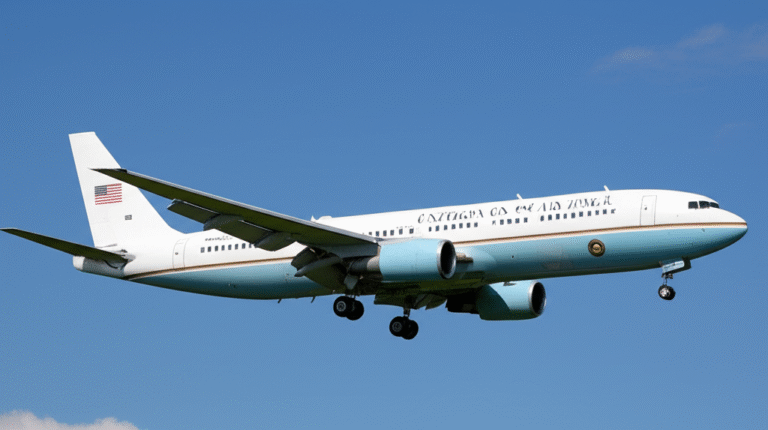News recently emerged of a truly unexpected event: the final journey of conservative activist Charlie Kirk will reportedly involve a very specific, highly recognizable mode of transport. His casket is slated to travel from Utah to Arizona aboard Air Force Two, a detail that immediately captures attention and prompts a deeper look into the confluence of personal remembrance and national resources.
Typically reserved for the Vice President of the United States and other high-ranking government officials, Air Force Two represents a symbol of federal authority and national importance. Its use for official duties, international diplomacy, or urgent matters of state is well-understood. This context makes its reported deployment for a private citizen’s final repose particularly striking, moving beyond standard protocols for civilian transportation.
Charlie Kirk, known for his impactful role as the founder of Turning Point USA, cultivated a significant following and influence within conservative circles. His passing marks the end of a figure who actively shaped youth engagement in politics. The decision to utilize such a prominent government asset for his post-mortem transit could reflect an extraordinary measure of respect, possibly orchestrated at a very high level, or an acknowledgment of his considerable sway, even in death.
This arrangement raises questions about the intersection of public office, private influence, and the allocation of state resources. While some may view it as a fitting tribute to a widely recognized leader, others might scrutinize the precedent it sets or the rationale behind employing such a high-profile asset outside its usual purview. It undeniably transforms a personal sorrow into an event layered with national, and perhaps political, implications.
Ultimately, the reported journey of Charlie Kirk’s casket aboard Air Force Two is more than just logistics; it’s a profound moment that transcends typical expectations. It underscores the unique position some individuals hold in the public consciousness and prompts reflection on how a nation chooses to honor its influential figures, even when those figures operate outside traditional government roles. This final flight, therefore, becomes a quiet but potent statement about recognition, legacy, and the intricate dance between private lives and public symbolism.
Source: https://www.cbsnews.com/video/charlie-kirks-casket-will-be-flown-to-arizona-on-air-force-two/


